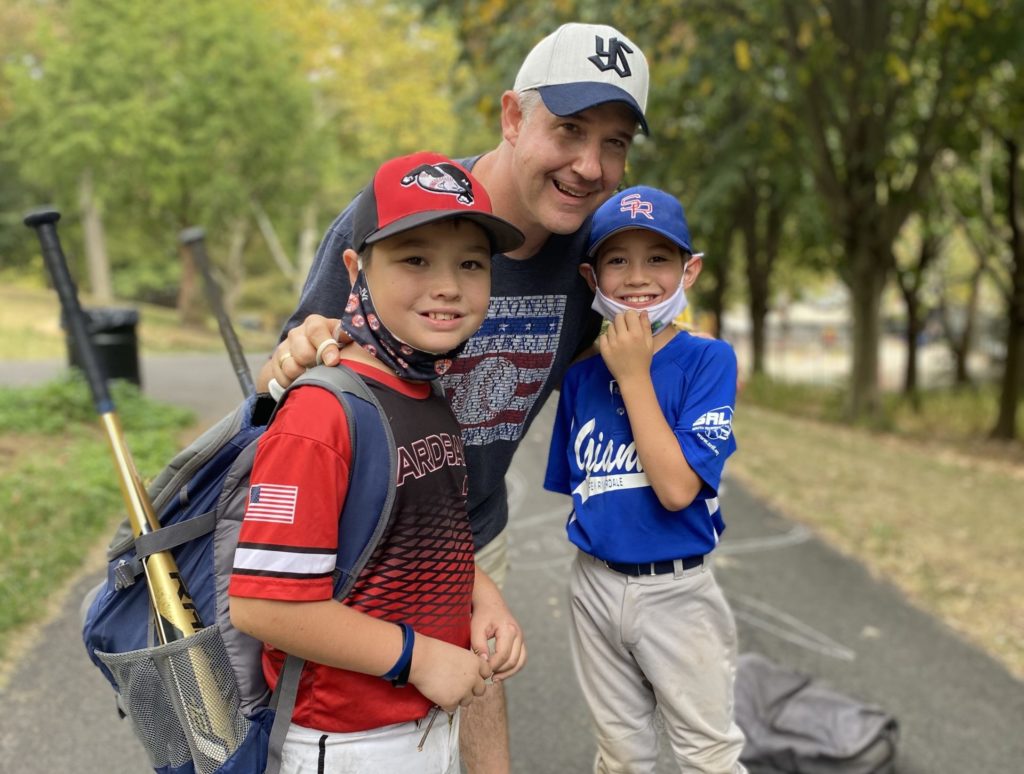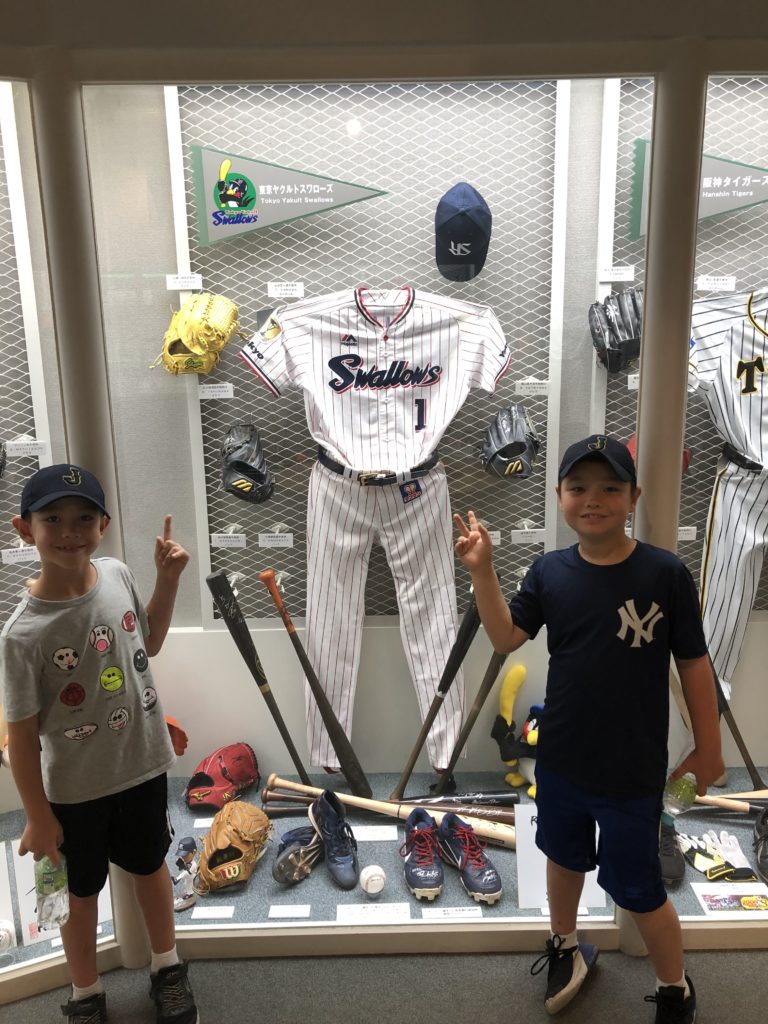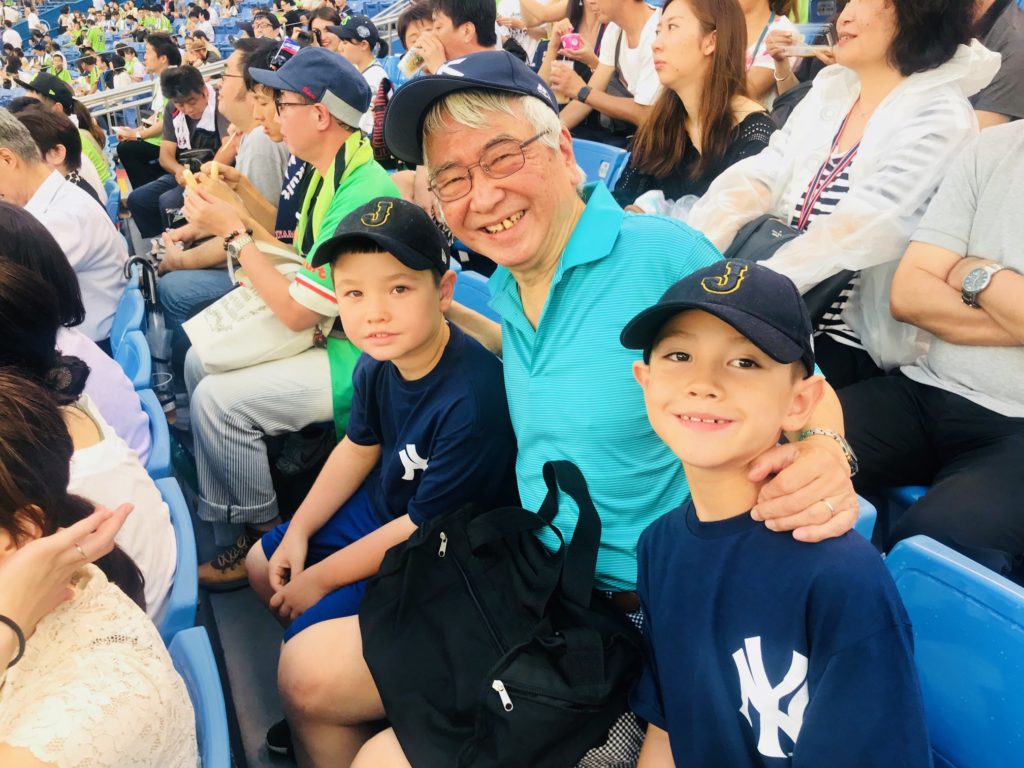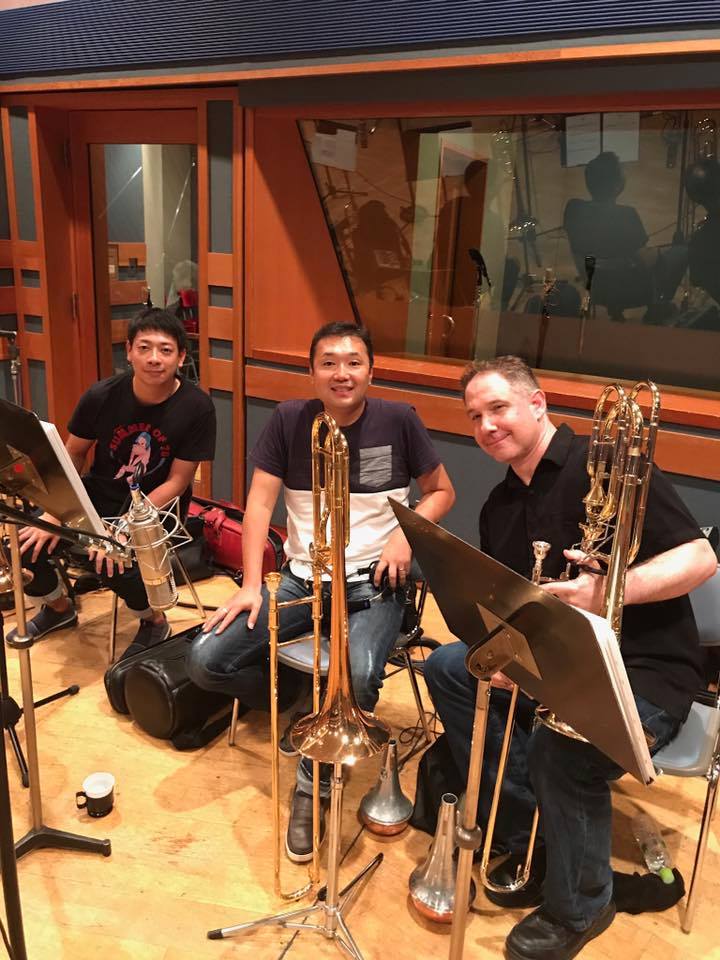Twists of fate are something Jonathan Greenberg knows well.
For starters, a chance visit by a junior high school music teacher to his elementary school started him on a journey to becoming a professional musician with a resume full of Broadway performances.
Later, his summer plans after one of his collegiate undergraduate years were suddenly upended, and he instead attended a summer music festival that pointed him more toward performing than teaching.
Then there’s the story about how he became a baseball fan at an early age, drifted from the game, and then returned to it with as much passion as before. And there’s the associated narrative about how he became a huge fan of the Japanese game.
More recently, the Covid-19 pandemic arrived without warning and put his and so many of his fellow musicians’ performing careers on hold. That motivated him to begin an alternate line of work as an editor and increase his involvement with the JapanBall community.
“I know this is the ultimate cliche,” Greenberg said, “but you just never know where your path will lead.”
His path began in the early 1970s. Born in 1972, he followed baseball from a young age as a fan of the New York Yankees, despite growing up in a part of Brooklyn that was home to a lot of New York Mets diehards.
“I remember watching the World Series in 1977 and 1978 and seeing Yankee Stadium for the first time when I was maybe seven. We’d go to my grandparents’ place a lot, and they’d always talk in detail about all the great Yankees they’d seen – guys like Babe Ruth, Lou Gehrig, Tommy Henrich and others. They liked [centerfielder] Bob Meusel the best.
“We even went to spring training a couple of times when they had it in Fort Lauderdale (FL). We’d go to the lobby of their hotel and get a lot of autographs – back when you could do that.”
Greenberg’s love of music germinated in his early years, as well. His father – a high school principal and later school superintendent – was also an amateur clarinetist and saxophonist. Then, when Greenberg was in the fifth grade, the junior high school music teacher came to his class, talked about being in the band and gave each student a musical aptitude test. Greenberg aced the test and said he wanted to play clarinet because his father did. However, the teacher noticed that he had long arms and suggested trombone.
“That was it,” Greenberg said. “My fate was sealed, although I didn’t know it then.”
That became a bit clearer one day because of another happenstance. Bored, he started going through his father’s closet and found a cache of records, one featuring the legendary jazz trombonist and singer, Jack Teagarden.
“Until then, I’d thought trombone music was kind of boring,” he said with a laugh. “But when I put that record on, it was an unbelievable feeling. I fell in love with the trombone and its unique voice from that point on.”
His interest in music deepened while in middle school, and he got even more serious about it during high school. He was a member of the All-City High School Jazz band, rehearsing at Lincoln Center on weekends and performing in Carnegie Hall. He also had the good luck to play in a band put together by the famed jazz musician Wynton Marsalis – “He later offered to write me a recommendation when I applied for college at Brown.”
Greenberg also attended a performing arts camp every summer during high school, which again affected his life’s path.
“A lot of people there were really good, but they and my parents thought it might be better if I went to a liberal arts school instead of a music conservatory,” he said. “That turned out to be good because I learned a lot more about life and learning than I might have otherwise, though I did have some catching up to do later on from the music standpoint.”
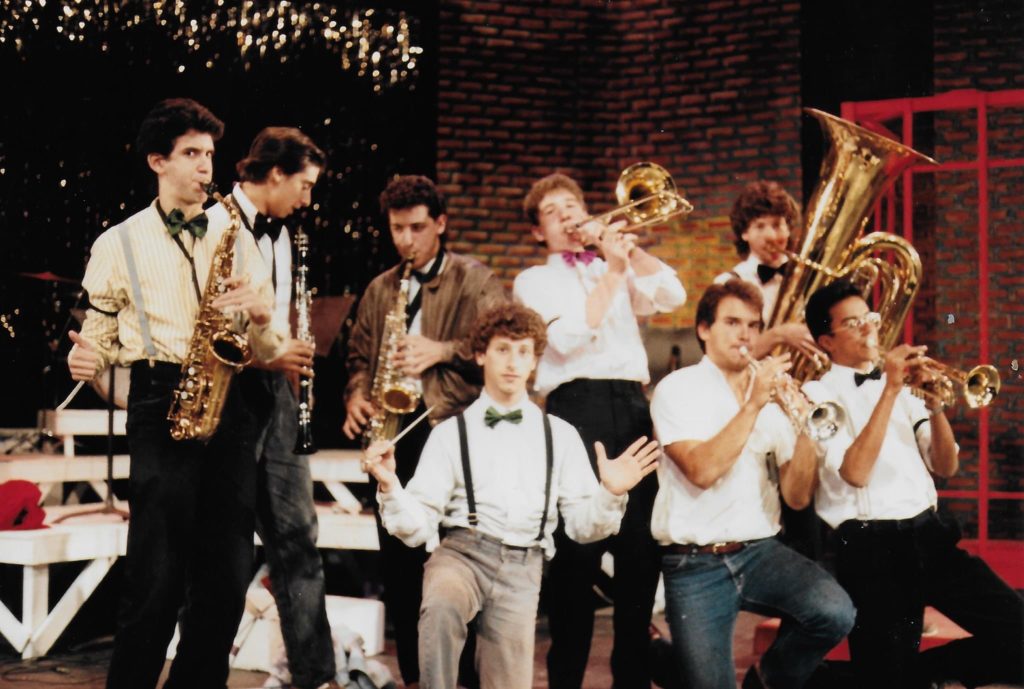
That influenced him to attend Brown as an undergraduate, at which time his goal was to be a music professor. However, yet another shift was in the offing.
“My plan for the summer after my junior year had been to go with my medieval history professor and study with him at the University of Glasgow in Scotland. But he passed away suddenly, and that opportunity went away,” Greenberg said. “Then I heard about the Aspen Music Festival and decided to go.”
Grasping that opportunity paid dividends, as he spent two summers in Aspen performing, studying, and absorbing the other performances. Perhaps most importantly, he met John Rojak, a bass trombonist who became an important teacher and mentor.
“Jonathan said he was going to get a master’s in instrumental performance, follow that with a PhD in musicology and then teach,” Rojak said. “I thought it was a great idea because the music field is so crowded and competitive. But he got so excited while being at Aspen that he got the performing bug, and it changed his life.
“He was able to absorb everything I told him and put it into action quickly,” Rojak continued. “He improved immensely that first summer. By the end, I was thinking ‘What have I done?’ Because he was looking to be a performing musician.”
So, after graduating from Brown, Greenberg enrolled at the Manhattan School of Music where another life change occurred. There, he met his future wife, Hanako Yamagata, a native of Tokyo who was majoring in piano. The two would see each other in the practice rooms early each morning. The relationship took off, and they married in 1999.
Meeting his wife also helped reawaken his love of baseball and ignite his interest in the Japanese game. Her father is a huge fan of the Yakult Swallows, and she had learned to love the game by attending games with him.
“I got back into baseball because of my wife,” Greenberg acknowledged. “She was really into it, and it led me back to the game.”
The spark occurred when he and his wife attended a Mets’ game 1995 in which Hideo Nomo was pitching and in his first major league season with the Los Angeles Dodgers. Nomo struck out 13 Mets in seven innings.
“I’d gotten into music pretty heavily by then, and I’d also been turned off baseball because of the steroid stuff and the [1994] strike,” he said. “But she dragged me to that Mets’ game, and Nomo was so good that it rekindled my interest. It reminded me of the faster-paced games of my youth. The excitement was back.
“I started following Nomo and got into the Japanese game more,” he continued. “Then [Hideki] Matsui came along. Watching him play was a game-changer, and he became my new favorite player when the Yankees signed him in 2003. He was selfless, a team player.”
Greenberg and his family started going to Japan every summer, and he and his father-in-law would go to as many Swallows games at Meiji Jingu Stadium as possible – “[My father-in-law] makes up for a year of not going to the games by going with me all the time while we were there. I’ve been to dozens of games there, and it’s been amazing taking my two boys the last couple of years.”
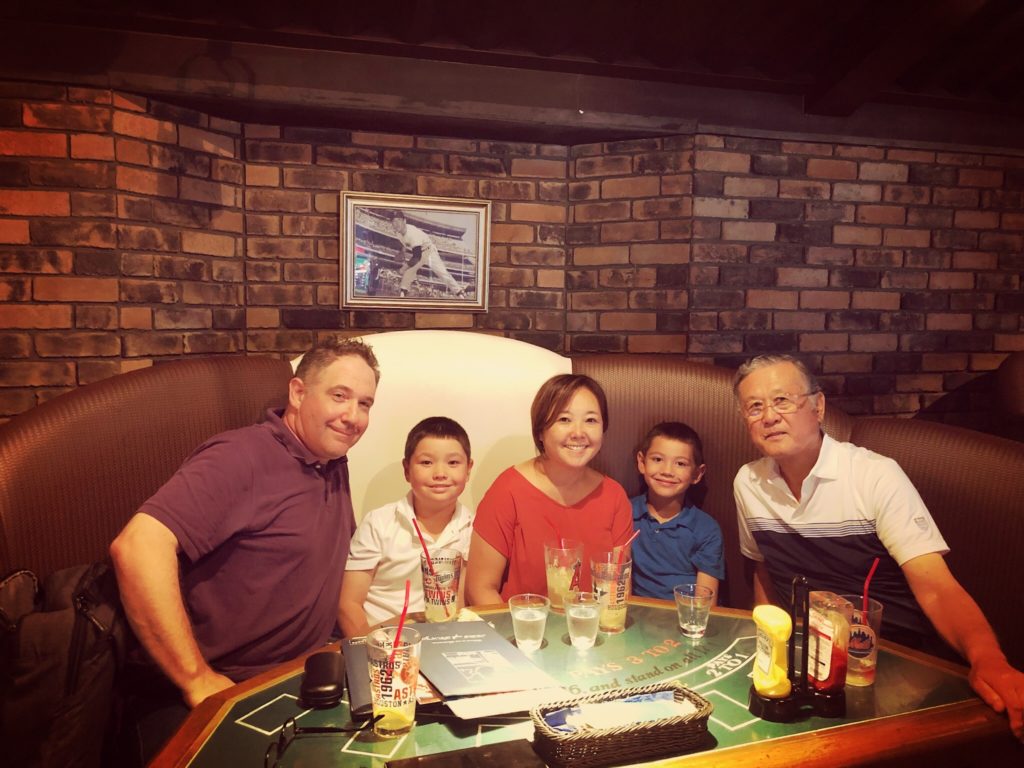
He and his sons – Daniel (age 11), and Joshua (9) – often get up at 5am during the season to watch Swallows games on television. Both boys play on travel teams, as well.
“They can name all the players on every team. They devour the stats, devour the names. It’s unbelievable how happy they are with it.”
While Greenberg’s baseball passion was reignited, his music career thrived. After getting his master’s degree, he spent a season with the Honolulu Symphony before starting with the orchestra for the Broadway production of “Les Miserables.”
“I was playing “Les Miserables,” and I’d have him substitute for me sometimes,” Rojak recalled. “It was his break into Broadway. If you do well, word gets around, and he did well. I was able to give him a bunch of work there.”
And he kept getting work over the next 25 years. Since that first break, Greenberg played regularly on Broadway – in productions such as “Wicked,” “A Chorus Line,” “The Phantom of the Opera,” and others.
In addition, he has performed and recorded with the Manhattan Jazz Orchestra (including their tours of Japan), Keely Smith, Frank Sinatra Jr., and Toshiko Akiyoshi, among others. He is a founding member of the St. Luke’s Trombone Quartet, bass trombonist with Absolute Ensemble, and a frequent performer with Manhattan Brass. Not least, he’s worked with arts-related non-profits and played with The Metropolitan Opera Orchestra, The American Ballet Theatre Orchestra, The Orchestra of St. Luke’s, and Mike Longo’s New York Jazz Orchestra.
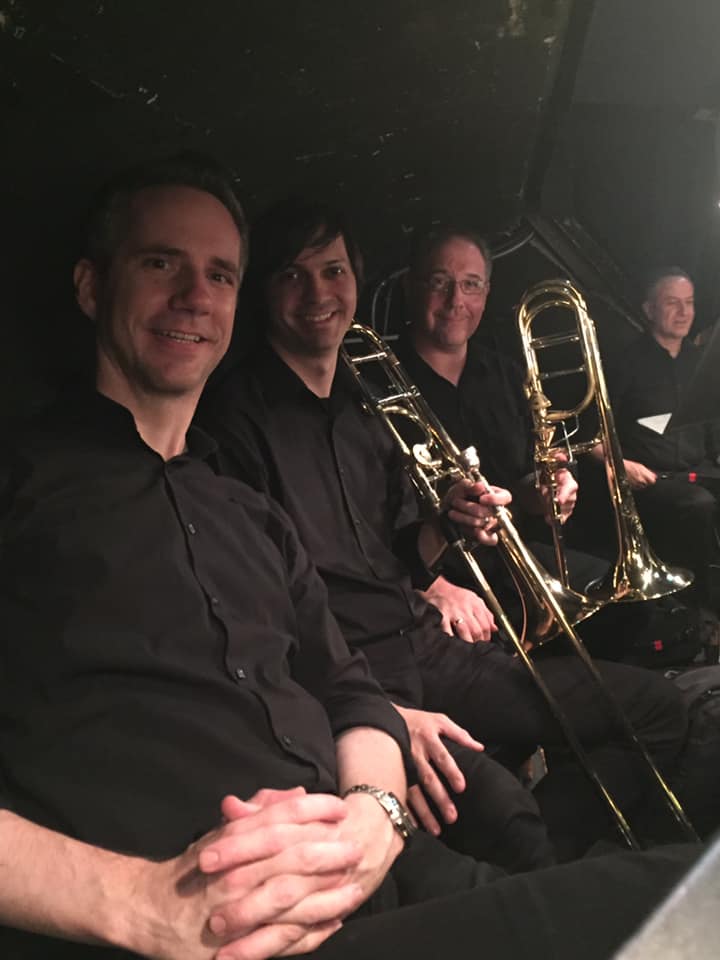
In 2009, he even played a concert in Japan where Hideki Matsui grew up and was delighted to learn that Matsui’s father would sing a few enka encores with Greenberg’s orchestra. The next day he went to the Matsui museum and met the father.
“On the way out, I signed the guest book and filled the page, gushing about how much Hideki Matsui had meant to me,” Greenberg said. “Amazingly, someone from the museum showed up the next day in the lobby of the hotel and gave me a set of cards for every single home run that Matsui ever hit in Japan. Some are pretty rare. They’re amazing, with pictures on the front and the detail on the back about the home runs.”
Covid-19, of course, interrupted all of the fun and excitement of live performances. Stopped it in its tracks, actually.
“I haven’t played a show since March 12, 2020,” he said wistfully. “I was going to play a run of a show in Tokyo and Osaka in May and June of last year, which would have been an exciting new chapter in my life, but it didn’t happen. Some people are saying that maybe things will open up [for performances] by September. I hope that happens.”
But even the work stoppage has unexpectedly opened some windows.
In addition to giving private lessons and serving on the faculties of Hunter College of the City University of New York, he’s had more time for family and editing work.
“One upside to being at home, is that I’ve had more time to spend with my boys,” Greenberg said. “Before, I was sometimes playing six to eight shows a week, and even up to six shows a day during Radio City’s Christmas show season – November through mid-January. That was lucrative, but exhausting.
“I’m also able to pursue my love of editing,” said Greenberg, who became a certified copy editor. “The exciting thing is that editing is sort of an extension of what I was doing in music – the collaboration with people, giving and receiving feedback. I can see the shape and rhythm of paragraphs, chapters, and so forth. It’s similar to collaborating in a music ensemble. So it doesn’t feel like a 180-degree turn.”
Opportunities have continued to arise. “I’ve been lucky,” he said. “People have trusted me and taken chances with me when they didn’t have to.”
In particular, he met Robert K. Fitts, historian and author of seven books on Japanese baseball, and discovered that they lived within a few blocks of each other. The two have become friends – often going for socially distanced walks during the pandemics – and Greenberg has helped edit several of Fitts’ books.
“He reached out to me on Facebook,” Fitts said, “saying that he’d like to have coffee and talk about Japanese baseball. I’m usually not enthusiastic about ‘blind dates’ like that, but we ended up meeting and found that we had a lot in common. We both went to Brown and both enjoy baseball. His wife is Japanese, so he’s been to Japan a number of times. My wife is not Japanese, but she spent a year in Japan, speaks Japanese fluently and graduated from a Japanese high school.”
“When I was writing my last big book – on Issei Baseball – Jonathan volunteered to read some drafts and proofread some galley proofs. Lately, I’ve hired him as a copy editor on two self-published books. He’s quite good, and his knowledge of baseball is key. A lot of copy editors are really good but don’t know the game. He can pick up on the really tiny things.”
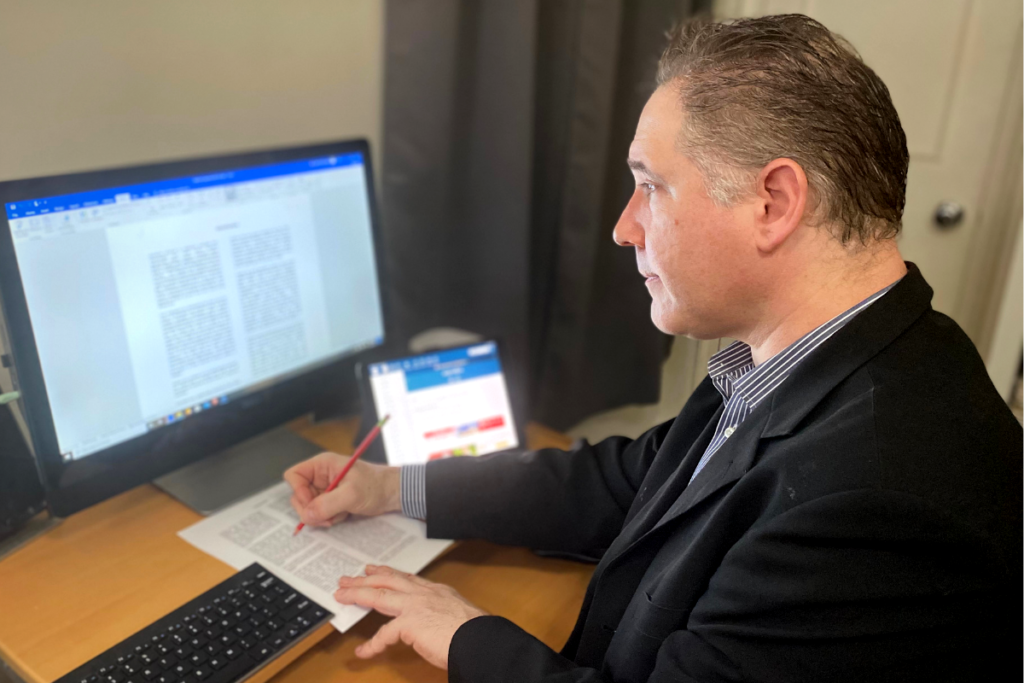
For JapanBall, Greenberg has helped with editing articles, refining content for a recent website rebuild, and putting together a style manual. He’s also an administrator of the JapanBall Community Facebook group, the creation of which was his idea.
“I got involved through Rob Fitts, who knows [JapanBall owner] Shane Barclay,” Greenberg said. “I started going to the “Chatter Up!” video sessions, which were amazing and really helped me get through the weeks when the Covid situation was really hard. And things just evolved from there.”
Barclay added, “Jonathan is a great example of how an American baseball fan can be completely engrossed in the Japanese version of the game, even while living in the U.S. He suggested the Facebook group as a way of communicating more interactively with other fans of the Japanese game, and the group has really taken off. I like working with him because he’s very enthusiastic about Japanese baseball and the unifying aspects of the game.”
Fitts concurred, saying, “One of the great things about Jonathan is his enthusiasm for Japanese baseball. As professionals, we’re kind of jaded. People ask me which team is my favorite, and I say ‘I write about baseball for a living; I never watch games at night.’ Most baseball historians are that way. But he’s so enthusiastic and knowledgeable that it keeps me going.”
As to what will keep Greenberg going, that is open to question.
“Going forward? Well, the last year has been hugely impactful in so many ways because of the pandemic, and we’re still going through it now, so we’ll see,” he said. “I love making music, but copyediting seems like an organic continuation of that first part of my life—in fact, they really work in harmony and complement each other. I believe the next chapter of my life can include performing, more and more editing, and seeing a lot more baseball games with my family.”
“I’m a believer in fate . . . It will be interesting to see where the next steps lead.”
Connect with Jonathan at EditedbyJonathan.com.
